We need your consent to use the individual data so that you can see information about your interests, among other things. Click "OK" to give your consent.
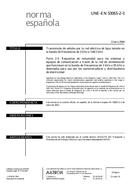
UNE-EN 50065-2-3:2004
Signalling on low-voltage electrical installations in the frequency range 3 kHz to 148,5 kHz -- Part 2-3: Immunity requirements for mains communications equipment and systems operating in the range of frequencies 3 kHz to 95 kHz and intended for use by electricity suppliers and distributors
Automatically translated name:
SIGNALLING ON LOW-VOLTAGE ELECTRICAL INSTALLATIONS IN THE FREQUENCY RANGE 3 KHZ TO 148,5 KHZ -- PART 2-3: IMMUNITY REQUIREMENTS FOR MAINS COMMUNICATIONS EQUIPMENT AND SYSTEMS OPERATING IN THE RANGE OF FREQUENCIES 3 KHZ TO 95 KHZ AND INTENDED FOR USE BY ELECTRICITY SUPPLIERS AND DISTRIBUTORS
STANDARD published on 16.1.2004
The information about the standard:
Designation standards: UNE-EN 50065-2-3:2004
Publication date standards: 16.1.2004
SKU: NS-558324
The number of pages: 19
Approximate weight : 57 g (0.13 lbs)
Country: Spanish technical standard
Category: Technical standards UNE
The category - similar standards:
Electromagnetic compatibility in generalImmunitySwitching and signalling systems
These changes apply to this standard:
Signalling on low-voltage electrical installations in the frequency range 3 kHz to 148,5 kHz -- Part 2-3: Immunity requirements for mains communications equipment and systems operating in the range of frequencies 3 kHz to 95 kHz and intended for use by electricity suppliers and distributors
Change published on 8.2.2006
Selected format:Show all technical information.
Similar standards:
30.10.2002
30.1.2004
30.1.2004
30.1.2004
31.12.2004
15.11.2006
We recommend:
Technical standards updating
Do you want to make sure you use only the valid technical standards?
We can offer you a solution which will provide you a monthly overview concerning the updating of standards which you use.
Would you like to know more? Look at this page.


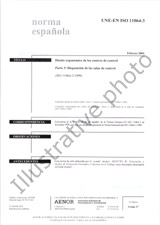
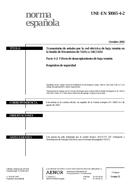 UNE-EN 50065-4-2:200..
UNE-EN 50065-4-2:200..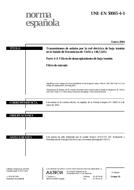 UNE-EN 50065-4-3:200..
UNE-EN 50065-4-3:200..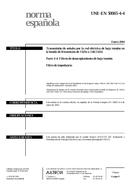 UNE-EN 50065-4-4:200..
UNE-EN 50065-4-4:200..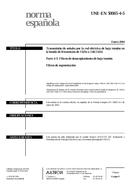 UNE-EN 50065-4-5:200..
UNE-EN 50065-4-5:200..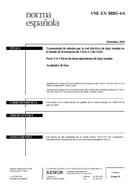 UNE-EN 50065-4-6:200..
UNE-EN 50065-4-6:200..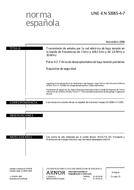 UNE-EN 50065-4-7:200..
UNE-EN 50065-4-7:200..
 Cookies
Cookies
